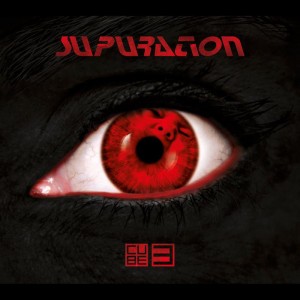 No one doubts the importance of style, but at the end of the day, style is not what makes one album great and others mundane. Like a technique used in painting, style is essential to convey particular meaning, but its inclusion alone doesn’t make the painting great. Only the skill of the artist and the composition of the painting can do that.
No one doubts the importance of style, but at the end of the day, style is not what makes one album great and others mundane. Like a technique used in painting, style is essential to convey particular meaning, but its inclusion alone doesn’t make the painting great. Only the skill of the artist and the composition of the painting can do that.
Supuration emerged years before the current alternative metal and progressive metal trends, mixing 1980s dark pop and indie with a strong progressive undercurrent in the style of Rush or Jethro Tull. Their legendary album, The Cube, divided metal listeners because while it had many aspects of off-mainstream rock, it sported death metal vocals and metal riffs. However, it also made them many fans who liked their adventurous use of music and very personal, evocative songwriting.
Cube 3 hits the target set by this first album by not imitating the style of the past but instead developing changes to that style naturally and focusing instead on songwriting. This allows Supuration to gratify older fans but not force themselves into acting out the past as remembered from a far off-distance. The style is mostly similar to The Cube, being alternative/indie-rock harmonies mixed in with metal riffs and progressive chord progressions, melodic leads and oddball song structures.
What makes this album work is that each song unites two concepts: first, a pop style hook; second, a theatrical staging of the conflict between two or more tendencies. These songs pull themselves apart between bassy heavy metal riffs, bittersweet vocal melodies, and intricately picked melodic guitar that expands the context of the music and shows a broader context.
These songs are full of musical oddities picked to stimulate, amuse and delight, but what fundamentally drives this band is its songwriting which has a strong connection to the idea of metal. The result is a metal hybrid that keeps the intensity of metal while creating a technical achievement that also has the emotional appeal of negative pop.


One of the regulars commented on that October Tide album, saying the harsh vocals were unnecessary. Well, it’s the same identity issues, different band.
In the case of this band, I have to make an exception. The death vocals work because so much of this music is harsh and dissonant. Then they change vocals when they have chorus or melodic parts. It’s a weird effect but it’s not as cheesy as nu-metal, where the chorus is all deathy and the verses simper.